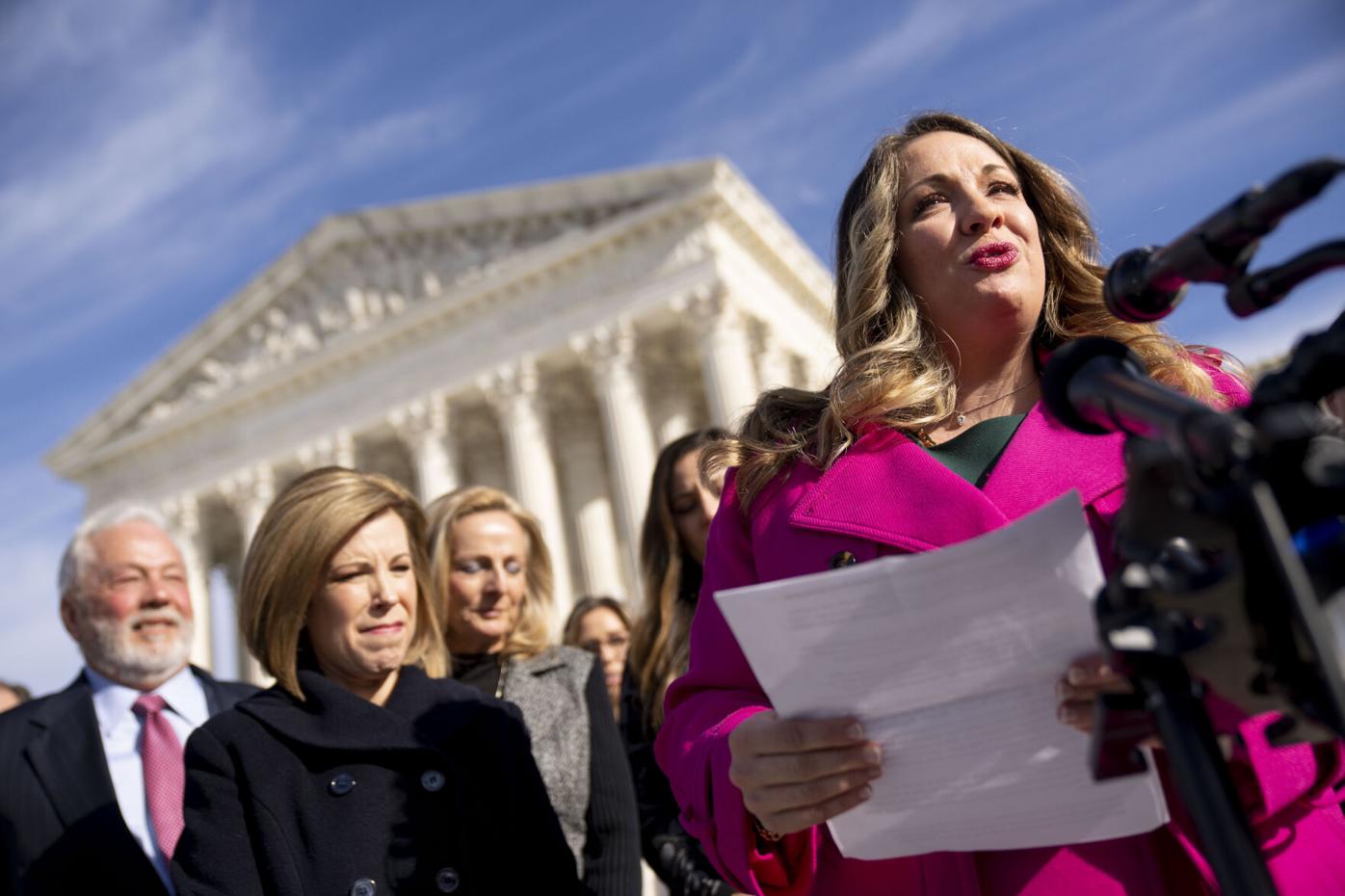Colorado to pay $1.5 million in same-sex wedding websites case

Lorie Smith, a Christian graphic artist and website designer in Colorado, right, accompanied by her lawyer, Kristen Waggoner of the Alliance Defending Freedom, second from left, speaks outside the Supreme Court in Washington, Monday, Dec. 5, 2022, after her case was heard before the Supreme Court. The Supreme Court ruled in favor of Smith, who objected to designing wedding websites for gay couples. (AP Photo/Andrew Harnik)
Andrew Harnik
Colorado agreed to pay more than $1.5 million in attorneys’ fees following the conclusion of a case involving a graphic designer who did not want to create wedding websites for same-sex couples.
Lorie Smith, who feared she would run afoul of the Colorado Anti-Discrimination Act if she refused to create websites for same-sex weddings through her graphic design company, 303 Creative, sued the Colorado Civil Rights Commission and the state’s attorney general.
The case made it all the way to the U.S. Supreme Court, which ruled last year in favor of Smith, concluding that Colorado sought to “force an individual to speak in ways that align with its views but defy her conscience about a matter of major significance” and therefore violated her First Amendment rights.
“The government can’t force Americans to say things they don’t believe, and Colorado officials have paid and will continue to pay a high price when they violate this foundational freedom,” Kristen Waggoner, who argued before the Supreme Court on behalf of Smith and 303 Creative, said in a news release. “For the past 12 years, Colorado has targeted people of faith and forced them to express messages that violate their conscience and that advance the government’s preferred ideology. First Amendment protections are non-negotiable.”
The office of Attorney General Phil Weiser confirmed the settlement over the fees but declined to comment.
Last year, after the Supreme Court ruled, Weiser said the decision “threatens to destabilize our public marketplace and encourage all kinds of businesses — not just those serving weddings — to claim a First Amendment free speech right to refuse service to certain customers.”
“This case is not about websites or speech — but the ability of all to enter the public marketplace as equals,” Weiser then said, adding, “Equality and fairness are core Colorado values and we have protected people in our state from discrimination in public accommodations for more than 100 years. We will work hard to ensure that, within the confines of the Court’s opinion, we take action to hold accountable those who engage in unlawful discrimination.”
In a statement on Tuesday, Smith said the court’s decision was a not just a win for her — but for “all Americans — for those who share my beliefs and for those who hold different views.”
“After enduring Colorado’s censorship for nearly seven years, I’m incredibly grateful for the work of my attorneys at Alliance Defending Freedom to bring my case to victory,” Smith said, referring to the legal out that litigated the case. “I love people and work with everyone, including those who identify as LGBT. For me, it’s always about what message is requested, never the person making the request. I hope that everyone will celebrate the court’s decision upholding this right for each of us to speak freely.”
A federal trial judge had sided with the government. On appeal, the U.S. Court of Appeals for the 10th Circuit split in a 2-1 ruling against Smith.
The appellate court’s majority acknowledged that Colorado’s law compelled Smith to “speak” in favor of same-sex weddings by creating websites for LGBTQ couples — the same as she would by serving opposite-sex couples — but argued that the compulsion was justified under the First Amendment because of the government’s legitimate interest in combating discrimination.
The dissent did not believe Colorado was allowed to force Smith to convey messages that violates her beliefs.
The earliest version of Colorado’s anti-discrimination law, known as CADA, dates to 1885, less than a decade after Colorado statehood. The legislature amended it in 2008 to prevent businesses open to the public from denying goods or services based on sexual orientation.
The question of whether CADA violates the free speech rights of those who refuse to serve LGBTQ customers previously reached the Supreme Court in 2017, with the case of Masterpiece Cakeshop v. Colorado Civil Rights Commission. The court decided the appeal on a narrow issue specific to the lawsuit, leaving the constitutional issue for the future — in what would become the 303 Creative case.
Justice Neil Gorsuch, who penned the majority opinion for the Supreme Court, said the court has long held that “the opportunity to think for ourselves and to express those thoughts freely is among our most cherished liberties and part of what keeps our Republic strong.”
Gorsuch said that a ruling against Smith would allow the government “to force all manner of artists, speechwriters, and others whose services involve speech to speak what they do not believe on pain of penalty.” For example, he argued, a gay website designer could be forced to design websites for an organization that advocates against same-sex marriage.
“Countless other creative professionals, too, could be forced to choose between remaining silent, producing speech that violates their beliefs, or speaking their minds and incurring sanctions for doing so,” he wrote.
Reporter Michael Karlik, Editor Luige del Puerto and The Associated Press contributed to this article.




